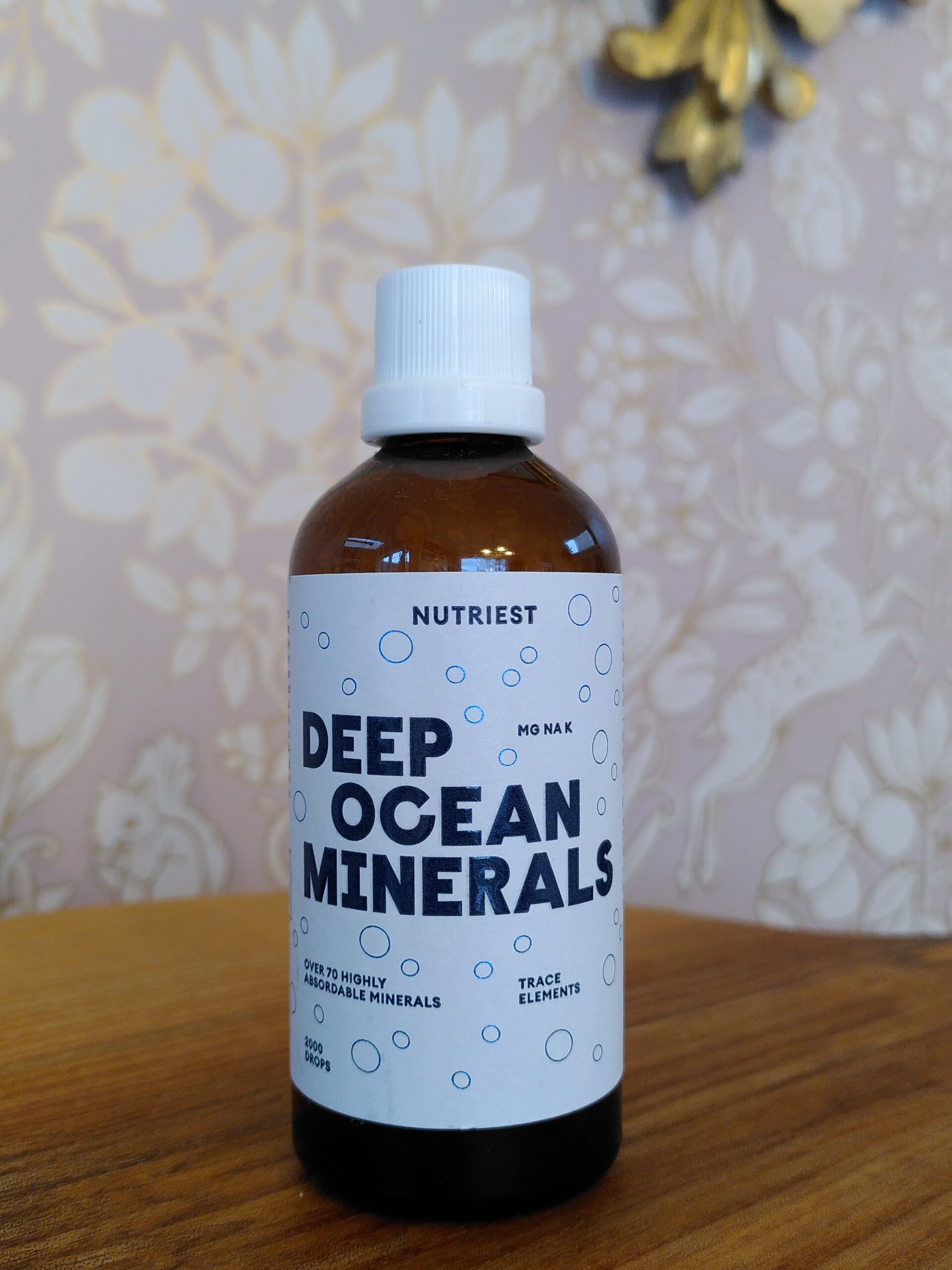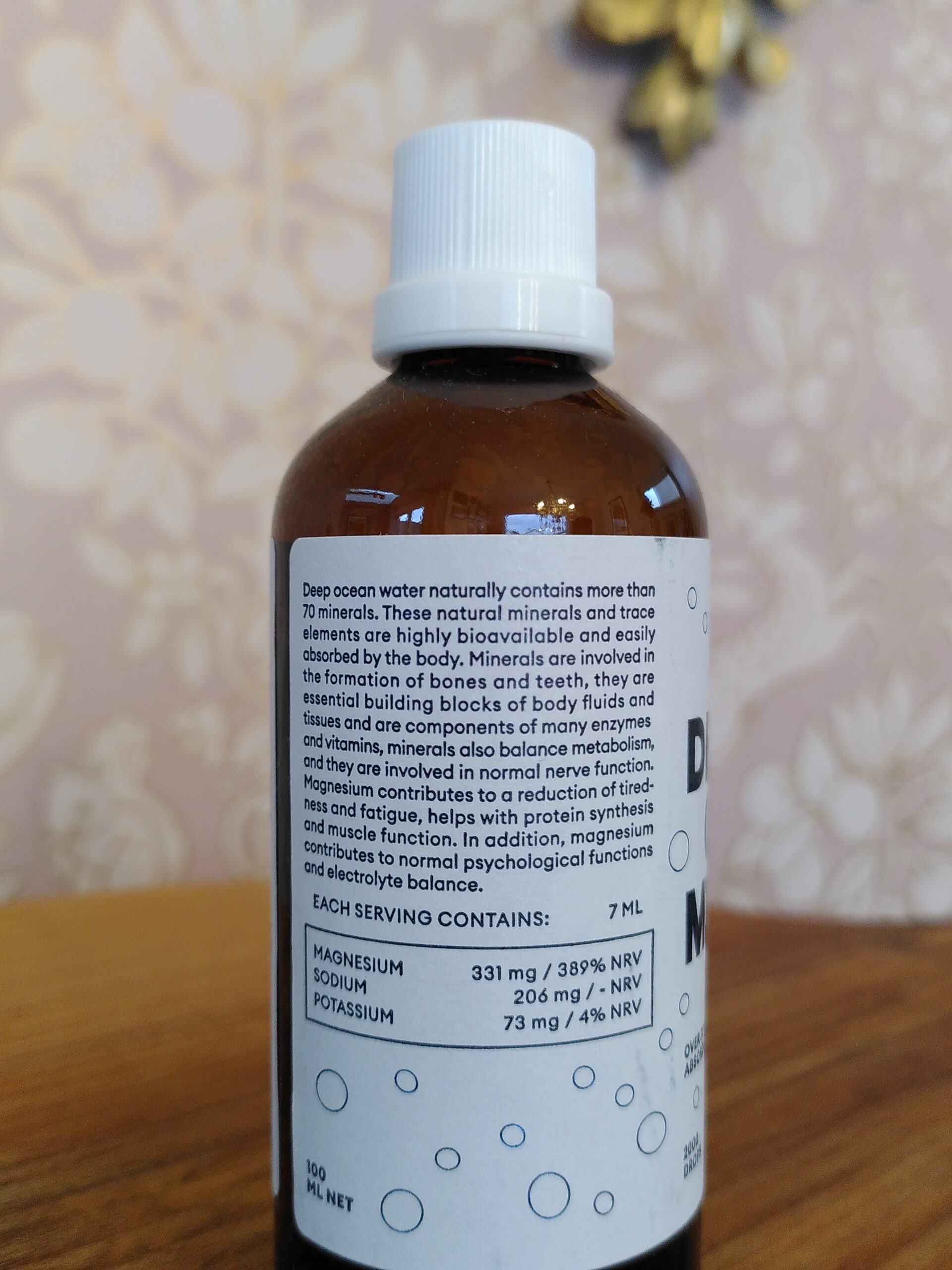Description
Deep Ocean Water naturally contains more than 70 minerals and trace elements such as magnesium, sodium, potassium, calcium, iodine, boron, iron, zinc, selenium, copper, molybdenum, manganese, chromium, silver, sulfur, phosphorus and many other essential minerals and micro and macro elements that are important for the functioning of the body. These natural deep ocean minerals and trace elements are mined at a depth of 662 metres from the remove waters of Taiwan’s east coast and are highly bioavailable and easily absorbed by the body. Some of the health benefits include:
- Stimulate collagen formation
- Enhance skin hydration
- Give structure to our organs, tissues, and bones
- Help maintain fluid balance
- Maintain pH balance
- Accelerate recovery from physical fatigue
- Enhances exercise performance
- Decrease risk of osteoporosis
Health benefits of magnesium: Magnesium is the fourth most abundant mineral in your body. Magnesium is a cofactor in more than 600 cellular reactions, that regulate diverse biochemical reactions in the body, including protein synthesis, muscle and nerve function, blood glucose control, and supporting the immune system. Low magnesium levels have been linked to many negative health outcomes, including weakness, depression, high blood pressure and heart disease.
Maintains a Healthy Heartbeat: Magnesium helps your heart muscle cells relax by countering calcium, which stimulates contractions. These minerals compete with each other to ensure heart cells contract and relax properly.
Improves Sleep Quality: Poor sleep is a major health problem around the world. Taking magnesium improves sleep quality by helping your mind and body relax. Studies have found that magnesium can regulate melatonin production, which is a hormone that guides your body’s sleep cycle. Magnesium has also been shown to bind to gamma-aminobutyric (GABA) receptors. The hormone GABA helps calm down nerve activity, which may otherwise affect sleep.
Magnesium Can Help Prevent Migraines: Several studies have shown that low magnesium levels may cause migraines. This is because a magnesium deficiency can affect neurotransmitters and restrict blood vessel constriction, which are factors doctors link to migraine. In one 12-week study, people with migraines who took a 600mg magnesium supplement experienced 42% fewer migraines than before taking the mineral. Increasing your magnesium intake could be a simple way to combat migraines.
Magnesium Fights Depression and Anxiety: Magnesium plays a critical role in brain function and mood, and low levels are linked to an increased risk of depression and anxiety. One analysis in over 8,800 people found that people under the age of 65 with the lowest magnesium intake had a 22% greater risk of depression. Some researchers believe the low magnesium content of modern food may cause many cases of depression and mental illness.
Magnesium Improves PMS Symptoms: Premenstrual syndrome (PMS) is one of the most common disorders among women of childbearing age. Its symptoms include water retention, abdominal cramps, tiredness and irritability. Magnesium has been shown to improve mood, reduce water retention and other symptoms in women with PMS.
Anti-Inflammatory Benefits: Low magnesium intake is linked to chronic inflammation, which is one of the drivers of aging, obesity and chronic disease. In one study, children with the lowest blood magnesium levels were found to have the highest levels of the inflammatory marker CRP. They also had higher blood sugar, insulin and triglyceride levels. Magnesium supplements can reduce CRP and other markers of inflammation in older adults, overweight people and those with prediabetes. Magnesium has been shown to reduce inflammatory markers and provides several other benefits.
Reduces Insulin Resistance: Insulin resistance is one of the leading causes of metabolic syndrome and type 2 diabetes. It’s characterized by an impaired ability of muscle and liver cells to properly absorb sugar from your bloodstream. Magnesium plays a major role in this process, and many people with metabolic syndrome are deficient. Increasing magnesium intake can help. One study found that supplementing with this mineral reduced insulin resistance and blood sugar levels, even in people with normal blood levels.










